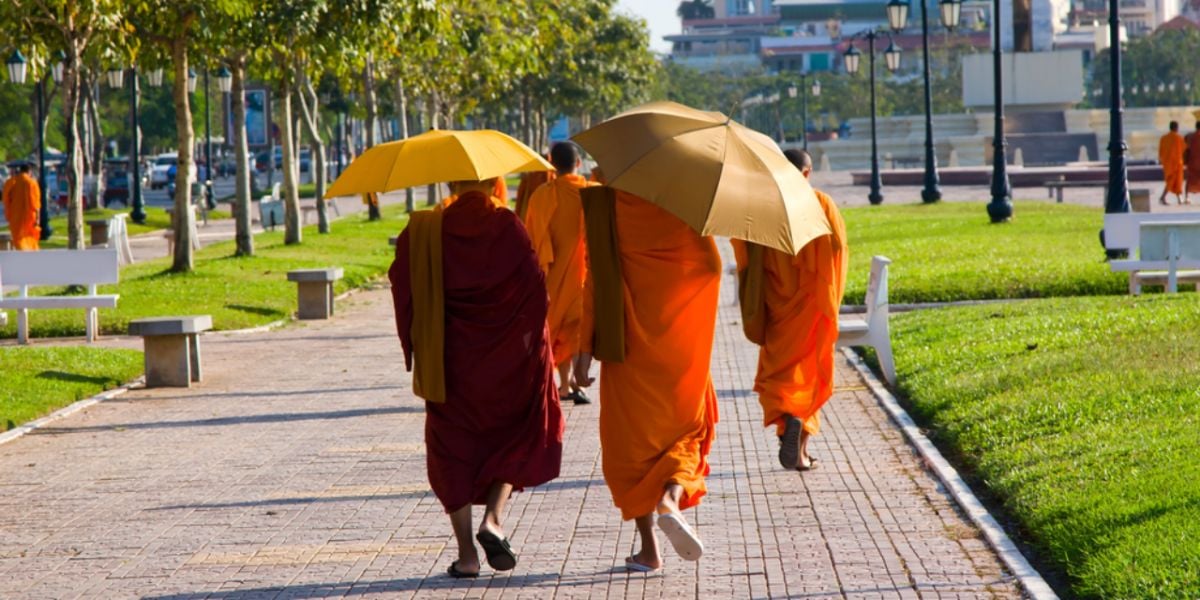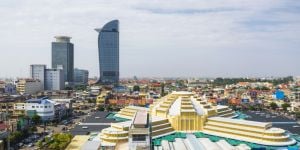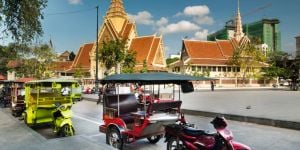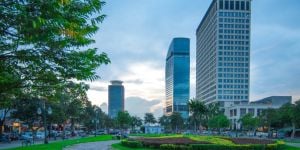
One of the best ways to enjoy being an expat in Phnom Penh is to embrace the local culture and do as the locals do. In this article, we will briefly cover things like Khmer cuisine, learning the language, bartering, tuk-tuks and wet markets.
Living abroad can be an incredibly rewarding experience, especially if you take part in getting to know the locals, trying new foods, and taking part in local activities.
The local cuisine in Phnom Penh
One of the most important things to a local Khmer is food, so this should be high on your list of ways to embrace the local culture. Khmer cuisine is incredibly diverse, but it typically consists of rice, pork or fish and vegetables. A great dish to try is bai sach chrouk, a rice dish typically eaten for breakfast that consists of rice, grilled pork/chicken, an egg, and a chilli dipping sauce. If you are interested in other great Khmer dishes, check out our article Eating out in Phnom Penh.
Learn the Khmer language
The best way to connect with a local is to speak Khmer, the Cambodian language. Of course, you are likely not to know a lick of Khmer as a fresh expat, but it helps to know a few phrases and words. Locals are more willing to help, and they often open up to you as a friend if you can understand and speak Khmer. There are language courses you can take in Phnom Penh, or you can purchase a language book. Some of the most important words and phrases to know are directions when driving like chuey for left and sadam for right, use chop to stop. Some conversational phrases and words such as; suasadei for hello, soksabai for how are you and arkun for thank you.
Bartering in Phnom Penh
Cambodia, as a country, uses a bartering system for purchasing certain goods. If you come from a country that is not familiar with how bartering works, it is worth looking up and utilising for your benefit. Most locals barter for just about everything except for meals and marked goods. As an expat, you are given the opportunity to practice this skill when you visit the wet market, take a tuk-tuk ride, or buy unmarked goods like clothes.
Most locals have their own cars or motorcycles to get around, but buying a car can be costly, and if you don't know how to drive in Southeast Asia, we don't recommend it. The mode of transportation you will likely often take is called a tuk-tuk or remork. It is a wagon type car that is pulled by a motorcycle. For most rides, you will need to barter the price beforehand. You will become well-versed in the common phrases you will need to say to communicate price and directions in no time.
Grocery shopping in Phnom Penh
Another way to embrace your life as a new expat is to shop like locals do at a wet market. In Phnom Penh, there are many markets scattered around each neighbourhood, but the bigger ones you are likely to become familiar with are the Central Market, Toul Tompoung Market (Russian Market) and Orussey Market. These markets hold home amenities, fresh produce and meats, grooming and even vehicle parts. If you are looking for something, it's bound to be at a wet market. Locals come early and often to get the best produce as that's when it's the freshest. Practice your newfound Khmer and bartering skills to talk to locals and find great deals.
We do our best to provide accurate and up to date information. However, if you have noticed any inaccuracies in this article, please let us know in the comments section below.








